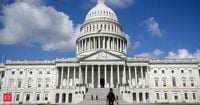When Congress reconvened on Tuesday, September 2, 2025, after a lengthy six-week recess, lawmakers faced a daunting to-do list that could reshape the nation’s political and economic landscape. As the clock ticks toward a government shutdown deadline on October 1, tensions are running high on Capitol Hill, with a slew of contentious issues—ranging from the notorious Jeffrey Epstein files to the future of Washington, D.C.’s policing—competing for attention and political capital.
The most urgent matter is, of course, government funding. Congress must allocate resources to 438 federal agencies before the new fiscal year begins on October 1, or else risk a partial government shutdown. According to The Economic Times and ABC News, this annual ritual has become fraught with even more drama under President Donald Trump’s administration. Lawmakers rarely meet the deadline, often relying on temporary spending bills to keep the government humming as they hash out differences. But this year, the stakes are even higher.
Democratic leaders, including Sen. Chuck Schumer and Rep. Hakeem Jeffries, have demanded bipartisan talks with President Trump and Republican leadership to chart a path forward. Trump, for his part, indicated on August 13 that he might meet with Schumer and Jeffries before the September 30 deadline, though he sounded less than optimistic, saying, “Well, I will, I guess. But it’s almost a waste of time to meet because they never approve anything.”
At the heart of the impasse lies a familiar tug-of-war over spending priorities. Democrats are pushing to restore cuts to Medicaid and rural hospital funding in exchange for their support on government funding measures. With 53 Senate Republicans expected to vote in favor, at least seven Democrats would need to cross the aisle to secure a bipartisan majority. However, that delicate cooperation is now in jeopardy after Trump’s recent request for a new rescissions package, which aims to claw back $4.9 billion in previously approved foreign aid funding. The White House is unlikely to accept Democratic demands, and so far, Republican leaders have not unveiled a clear plan to avoid a shutdown.
Both chambers have made little headway on the twelve required appropriations bills. The House and Senate have each passed only two bills through their respective chambers, with the House advancing nine out of committee and the Senate clearing eight. With time running short, a stopgap continuing resolution seems like the most likely option to avert a shutdown. Yet, as negotiations drag on, the possibility of a shutdown one month from the deadline remains very real.
Should a shutdown occur, the consequences could be severe. As reported by The Economic Times, hundreds of thousands of federal workers would be furloughed without pay, and a wide range of government services could be disrupted—from financial oversight to trash collection in national parks. Essential workers would remain on the job, but they, too, would go unpaid until the government reopens. While short shutdowns often have minimal impact, a prolonged closure could sap billions from the economy. The 2018–2019 shutdown, for example, drained about $3 billion, or 0.02% of GDP, according to the Congressional Budget Office. With trade wars and economic uncertainty already swirling, a lengthy shutdown now could prove even more disruptive.
This fiscal showdown isn’t the only drama unfolding on Capitol Hill. The saga of Jeffrey Epstein is set to dominate headlines and committee rooms alike. On September 3, Representatives Thomas Massie and Ro Khanna plan to host a news conference with survivors of Epstein’s sexual abuse, aiming to rally support for a measure that would compel the release of the so-called Epstein files. This move runs counter to Speaker Mike Johnson’s preference for the Department of Justice to lead on transparency regarding the Epstein matter.
The House Oversight Committee, which plans to meet with Epstein victims on September 2, remains divided. Before the recess, disagreements over the Epstein files paralyzed the lower chamber, with the House Rules Committee unable to tee up basic legislation for floor votes. Democrats remain dissatisfied with the Justice Department’s compliance with a subpoena for records, and the Rules panel is likely to resume its pressure campaign, potentially renewing the stalemate.
The GOP-led Oversight Committee has subpoenaed the Epstein estate, seeking documents by September 8. Former Labor Secretary Alex Acosta—who, as U.S. attorney in 2008, cut a controversial deal allowing Epstein to avoid federal prosecution—will appear before the committee behind closed doors on September 19. Oversight Chairman James Comer has also requested suspicious activity reports from Treasury Secretary Scott Bessent, hoping to shed light on the enforcement of sex trafficking laws in connection with Epstein and his associate Ghislaine Maxwell. Notably, subpoenas have been issued to several high-profile figures, including former President Bill Clinton and former Secretary of State Hillary Clinton.
Epstein’s story remains a source of public fascination and outrage. Arrested in July 2019 on federal charges of conspiracy and child sex trafficking, Epstein died in custody a month later—his death ruled a suicide. Maxwell was convicted in 2021 and is currently serving a 20-year prison sentence for aiding Epstein’s trafficking of underage girls.
Meanwhile, the question of federal control over Washington, D.C., and other cities is adding another layer of complexity. Trump’s deployment of the National Guard in D.C., as well as his plans for other cities, is drawing sharp lines in Congress. The House Oversight Committee is set to advance a series of D.C. crime bills supporting Trump’s crackdown, while Democrats push legislation to end what they call the “federalization” of the nation’s capital. Trump has announced plans to seek more funding to combat crime in Washington, and Sen. Lindsey Graham has vowed to work for a so-called D.C. crime fund. Extending Trump’s authority to federalize the city’s police department will soon require congressional approval, likely needing 60 votes in the Senate—a threshold that’s never been crossed for such a move.
Other high-stakes issues are also on the docket. Senate Republicans plan to revisit modifications to Senate rules to expedite the confirmation of over 100 Trump nominees—a debate that’s sure to spark procedural fireworks. Congress is also returning for the first time since Trump’s summit with Russian President Vladimir Putin in Alaska, and lawmakers are expected to reengage on foreign policy, with possible movement on a Russia sanctions bill in the Senate, though nothing formal has been announced.
Finally, the Oversight Committee’s investigation into former President Joe Biden’s cognitive decline and use of an autopen in office continues to simmer. More former Biden officials, including press secretary Karine Jean-Pierre, senior deputy press secretary Andrew Bates, and chief of staff Jeff Zients, are expected to appear for closed interviews in the coming weeks. Anita Dunn, a former adviser, testified in August that she observed a “physical” decline in Biden but believed he remained mentally engaged. Biden himself pushed back against reports of cognitive decline during a May appearance on ABC’s “The View.”
With so many critical issues converging and the threat of a government shutdown looming, the coming weeks promise to be a test of Congress’s ability to govern—and the nation’s patience for political brinkmanship.





